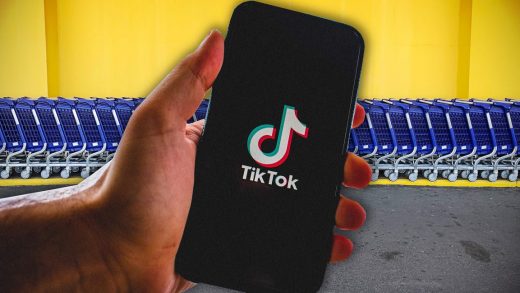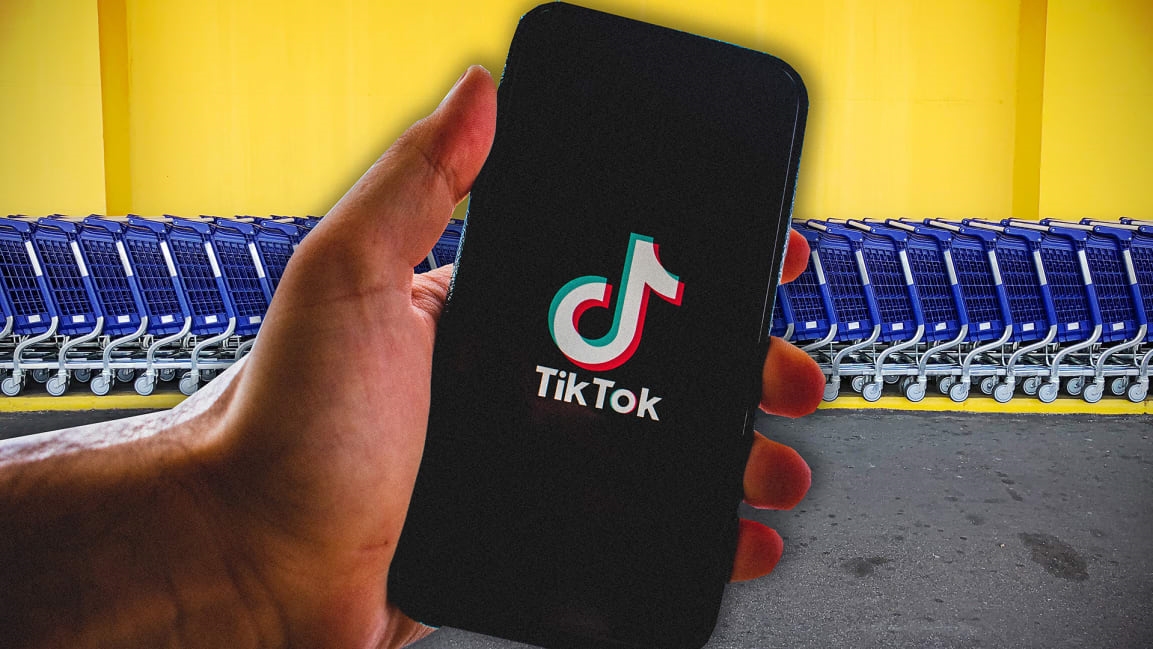How TikTok could turn Walmart into an advertising powerhouse
Walmart is interested in going in with Microsoft to buy the U.S. operations of popular social video app TikTok, and the retailer’s motivation for buying in likely has a lot to do with digital ad dollars.
At first blush, you might imagine Walmart using TikTok as a video component to go along with the Walmart+ membership it plans to offer in answer to Amazon Prime. But TikTok is nothing like the long-form video Prime members get from Prime Video, and shouldn’t be morphed into that. TikTok should just be TikTok.
TikTok is a premier space for digital advertising. Walmart said in a statement that TikTok might present “an important way for us to reach and serve omnichannel customers as well as grow our third-party marketplace and advertising businesses . . .”
Walmart is putting together all the pieces needed to sell programmatic advertising on its sites, similar to what Amazon has done. (Amazon now controls 8% of the digital ad space and its ad business is growing rapidly.) One of those sites could be TikTok.
Beyond the chance to run TikTok on its Azure cloud services, the reasons for Microsoft’s interest in TikTok are less obvious. Despite its emphasis these days on business-oriented cloud and productivity offerings, the company could benefit from staying plugged into consumers’ interests and perhaps collecting some data on TikTok’s young users. But it isn’t likely interested in dramatically ramping up its ad business. Microsoft still sells cost-per-click ads on its Bing search engine, but it’s turned much of its search and display ads business over to Verizon Media, gradually expanding the terms of a 2015 agreement in which AOL (which was then acquired by Verizon) assumed management of display, mobile, and video ad sales for Microsoft brands including Outlook, Xbox, and MSN.
The New York Times‘ Mike Isaac and Andrew Ross Sorkin report that Microsoft originally wanted to make a small investment in TikTok, but was pulled into a geopolitical drama after Trump decided to ban TikTok, which is owned by the Chinese company ByteDance.
Walmart’s ads game
Digital advertising giants like Facebook and Google control two crucial assets–hugely popular consumer destinations, and heaps of unique personal data that they use to target advertisements at specific audiences at those destinations. Google captures what people search for, what videos they watch, and what they put in their calendars and emails. It uses such data to help brands target ads on YouTube via its advertising exchange. Facebook captures its users’ personal and social data and uses this information to connect advertisers with specific audiences on its social network. The targeting data isn’t sold, just loaned, and Google and Facebook are the exclusive brokers of targeted ad space on their platforms.
Like Amazon, Walmart has tons of data on the things people shop for; the company says 160 million people visit its stores and websites every week. That data is a good indicator of the products people may buy again or might be interested in in the future. The company leverages it to target search and display ads on Walmart.com.
TikTok already has 100 million users in the U.S. alone, and its users are a younger demographic that advertisers yearn to get in front of.
But Walmart’s ad business is relatively new. Only earlier this year did the company roll out a self-serve portal where brands can buy on-site search and sponsored product ads. That came after Walmart bought ad-tech startup Polymorph Labs, which also brought with it a high-speed ad server and software that automates the bidding for ad space.
The ad space that Walmart can exclusively offer on its ecommerce platform is valuable, but the ability to sell ad space on a property like TikTok would be something else again. TikTok is a sensation; it already has 100 million users in the U.S. alone, and its users are a younger demographic that advertisers yearn to get in front of.
TikTok is itself in the early stages of selling ads on its app, and it has data on people’s video content choices, but it lacks data on the things people buy. If Walmart owned TikTok it could use its ecommerce user data to help advertisers put ads in front of the right TikTok users. And Walmart could be the exclusive seller of targeted ad space on TikTok.
One advertising industry insider told me that a brand—say a car company—might use a cookie to capture data on a consumer that came to its site to look at cars, then use Walmart’s ad-tech to show an ad to that same consumer on TikTok.
Walled gardens
The same ad-industry exec told me that the model fits with a trend in the industry toward “walled garden” approaches to selling digital ad space. Demand-side platforms (DSPs) and ad exchanges often target audiences on the open web–in other words, they let advertisers automatically bid on ad inventory on sites all around the web, and use technology to place the ads where they might be most cost-effective. But increasingly, big tech companies wall off the destinations they own and offer their own their proprietary DSP and data as the only way advertisers can buy ads. The source said Walmart may use that same walled-garden approach if it acquires TikTok.
Selling programmatic ads would be one way for Walmart to monetize TikTok while staying more or less in the background. But explicitly using TikTok to sell Walmart.com products may be a step too far, explains eCommerce principal analyst Debra Aho Williamson in a statement to Fast Company.
“Walmart could provide a solid backbone for enabling direct purchases within TikTok,” she says. “While Walmart is extremely smart and strong in commerce, I don’t know that anyone will want to use TikTok if it’s filled with creators hawking merchandise that you can purchase at Walmart.com.”
As it stands now, TikTok, which President Trump has ordered must sell off its U.S. operations by September 15 or face a ban, has not decided on a buyer but reports say it could announce a sale in the next few days. Regulators will have to approve any deal; if Microsoft and Walmart are the buyers it seems plausible that the government would see it favorably, as it could help turn Walmart into a more formidable competitor to Amazon.
(39)



